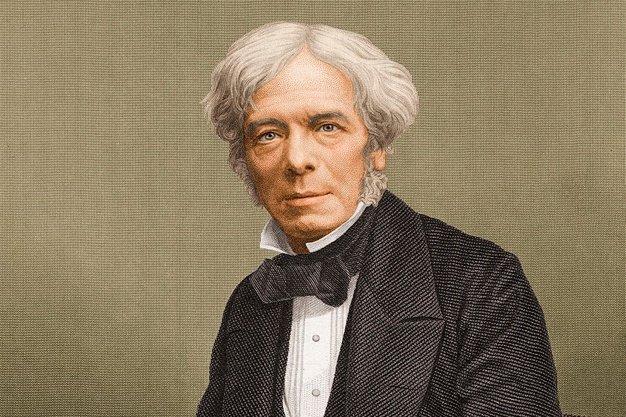Remembering Father of Electricity Michael Faraday

Michael Faraday is an English physicist and chemist whose many experiments contributed significantly to the understanding of electromagnetism.
Facts about the Father of Electricity
He was born on 22nd September 1791 in Newington, Surrey, England.
Michael Faraday was an innovative physicist and chemist of the 19th century in Great Britain. Faraday developed or invented many items and methods, including the electric motor, transformer, generator, Faraday cage and many other achievements.
Albert Einstein kept a picture of Michel Faraday on his study wall along with Issac Newton and James Clerk Maxwell
Why is Michael Faraday regarded as the Father of Electricity?
Michael Faraday is regarded as the Father of Electricity because of his work. Many also contemplate him as the father of Electromagnetism. This is because he discovered electromagnetic induction, and found a way to transform magnetic force into electrical force. His work would motivate others to follow in his footsteps, and changing the world.
Where Did Michael Faraday Do His Work?
Michael Faraday was a curious and thorough investigator who arose from undistinguished beginnings. Because of his poverty, he started his work at age 14 under a bookbinder and bookseller. This exposed him to read many books and enabled him to educate himself on various topics. He grew fascinated with magnetism, electricity and chemistry.
Faraday’s initial experiment was a chemistry experiment in which he decayed magnesium sulphate. He also worked on enhancing steel alloys. In 1823, Faraday condensed chlorine gas for the first time. In 1825, he uncovered bicompound of hydrogen, now known as benzene.
While Faraday did not have any information on atomic particles that would be discovered decades later, he did make some interesting notes. He speculated about the behaviour of metals carrying induced electric current. Faraday even went so far as to postulate there might be particles of matter in electrical arrangements, which could move. He was describing electrons without realizing it!
How Did Michael Faraday Change the World?
- Faraday’s generator discovery led to applications that aided sailors at sea. A British lighthouse became first in the world in which electricity was used to power the light. This generator was descendent of Faraday’s original invention.
- He and chemist John Danielli worked on the terms used in electrochemistry. Faraday came up with the words “ion,” “cathode” and “electrode.” It is hard to imagine that those terms were conceived of in the 19th century as they have been so important and prevalent in the 20th and 21st centuries.
- Today, even Michael Faraday’s name is honoured as a unit. Farad is the term used as unit for electrical capacitance.
- The electric power, which is used all over the world relies upon Faraday’s inventions and discoveries almost two centuries ago.
- All energy sources still rely on a generator to produce the electrical current that powers everything we use.
- Remember the contributions of Michael Faraday the next time you see a hydroelectric dam or a steam plant.
- With his limitless curiosity, desire to educate others and great attention to detail, Michael Faraday left a permanent mark on science in general.
- When you look around your home and outside, you will find something that Faraday lent his lifelong work to in some way or the other.
- Michael Faraday, as Father of Electricity and Electromagnetism, has given his contribution to changing the world for the better.
Before you go…
If you enjoyed this post, you will love Winspire Magazine. (Winspire Magazine is an educational print magazine started to help your children to THINK and GROW BIG)
Try for Free to get a digital copy of the print magazine, and click here to subscribe.
We’ve created this content for informational purposes only, and it reflects the views of its respective authors/entities (freelancers/interns) and not those of Winspire Magazine. Winspire Magazine does not endorse or vouch for the accuracy of the information provided in this content. It is the reader’s responsibility to verify and ensure the information is correct and up-to-date. Winspire Magazine disclaims any liability or responsibility for any damages or losses from using this content. Therefore, readers should take all necessary steps to verify the accuracy and reliability of any information presented in this content.


